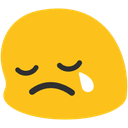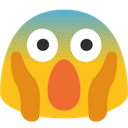People all have different views when it comes to leadership and how to run a country. What about you? Are you liberal or conservative? Are you left-wing or right-wing? In this lesson, we will look at common vocabulary used to discuss politics. I will teach you words you need to know in order to understand the news, current events, and even have debates with your friends.
Next, watch Benjamin's lesson to learn even more political vocabulary:
https://www.youtube.com/watch?v=1NIcll5RErg
TAKE THE QUIZ:
http://www.engvid.com/vocabulary-talking-about-politics-in-english/
TRANSCRIPT
Hi. Welcome again to www.engvid.com. I'm Adam. Today, as in response to some requests, I'm going to give you a few vocabulary words or a few words-sorry-about political views. Now, before I start, I just want to make sure we understand: This is just about English. We're not having any political discussions, here. This is meant to help you read newspapers, watch TV broadcasts, listen to radio broadcasts about political news, and these are words that you will see quite often when you're reading these things or watching these programs. Okay? So, we're going to look at a few common words that come up when we're talking about political views. Now, "political views" are basically opinions about how politics should run, how governments should run or be run, etc.
So first we're going to look at the three main types of government. There are "democracy", "authoritarianism", and "dictatorship". "Democracy" is a process by which several parties... Okay? Several parties, each one has its own leaders and its own members, and they compete for the votes of the public. You have several to choose from, the public chooses. The one that gets the most votes or wins somehow the election in their system, they lead the country for a specified period of time. And then you have another election, you can choose the government again, you can choose another government. You can do whatever you need to do.
"Authoritarianism" is a system by which only one party... Or "in which" I should say. Only one party controls the government. So, you don't really have any choice, and the elections are not... If there are elections, are not very legitimate. There's one party, they are the controlling power, they make the decisions, everybody does what they want them to do.
"...ism". I'm just going to mention this. You're going to hear a lot of ism's when you're hearing about politics. Okay? It just means you're taking the concept of whatever the word is before it. So: "ism" is more about the concept of whatever.
"Dictatorship", this is a form of government where one person controls the government and has all the power, all the decision-making power. We're not going to get into the details of how each of these types of government rules or runs the country they're in, but we're just going to talk about what they are very generally.
Next, so here we're getting more into the specific views that people have. Most people are "Liberal" or "Conservative". Now, you're going to hear these words a lot. In America, for example, you hear about the Democrats and the Republicans. Generally, the Democrats are Liberal, the Republicans are Conservative. Liberal government or Liberal politicians believe in the individual. They want every individual to have an opportunity to succeed. They want, basically, to help everyone improve their lives somehow. Conservatives, on the other hand, they're more about everybody takes care of themselves. Sorry, Liberals, they want the government to help the individuals; Conservatives want the individuals to help themselves. And "Conservatives" comes from the word "conserve", there would be an "e" here. They want to keep traditions, they want to keep or maintain values, they don't like change. Liberals, on the other hand, want to change all the time to meet the needs of the people. More good for more people, as it were.
Now, if you hear about "left-wing" or "right-wing" or "centrist", you're talking about the spectrum. The spectrum is basically the range of political views. You have the far left-wing, you have the far right-wing, and you have the people in the centre; they're not really right, they're not really left. Although, they generally lean. "Lean" means "rooop", I'm leaning to the right or I'm leaning to the left. So, even centrists, they're usually centre-right or centre-left, it means they're a little bit more to one side than the other, but generally, they're... They want a bit of a mix. Left-wing politicians or left-wing views generally go with Liberals. Right-wing views or right-wing politicians generally go the idea of Conservatives. Centrists want a little bit of a mix. They will go with whoever will do the best benefit for everybody.
 https://www.youtube.com/embed/h2jBsmGKwLs
https://www.youtube.com/embed/h2jBsmGKwLs








View comments